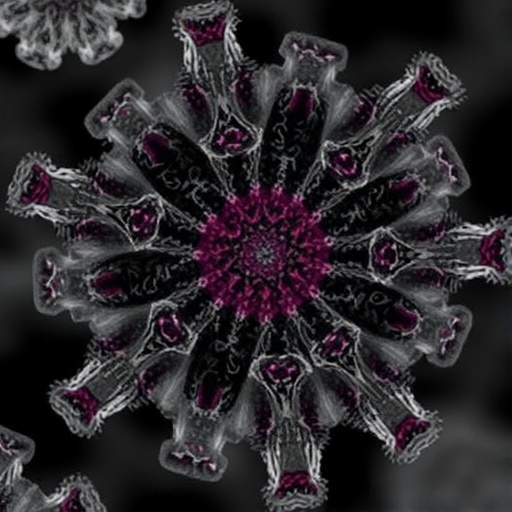
In an era where the integration of healthcare efficiency and environmental sustainability is becoming increasingly critical, a pioneering study spearheaded by Trinh et al. shines a light on the intersection of these two urgent healthcare challenges. The research strives to significantly reduce unnecessary laboratory testing conducted by medical residents, a common practice that not only strains healthcare resources but also contributes to waste in the medical field. The examination focused on developing an interventional pilot aimed at fostering high-value care while simultaneously promoting sustainability within the medical curriculum.
At the heart of the study is the recognition that unnecessary laboratory tests can lead to deleterious outcomes—not only for patient care but also for the environmental footprint of healthcare institutions. As medical training often emphasizes thorough diagnostic processes, the propensity to order extensive lab tests can balloon, consequently inflating costs and increasing the generation of biomedical waste. This research seeks to marry the ideals of high-value care with the pressing demands for environmental stewardship in healthcare.
The experiment was conducted within a controlled environment, where a cohort of medical residents was introduced to tailored interventions designed to raise awareness about the implications of surplus laboratory testing. Residents received comprehensive training that highlighted the balance between necessary diagnostics and the economic and ecological burdens of unnecessary testing. The educational initiatives provided the residents with concrete data illustrating the negative ramifications of over-testing, fostering a mindset that prioritizes patient-centered care without compromising ecological responsibilities.
The results from this pilot study were initially promising. The cohort that participated in the interventional pilot exhibited a notable decline in the number of unnecessary laboratory tests ordered. This was achieved through several strategic educational interventions, including workshops, case discussions, and targeted feedback sessions. Moreover, these efforts encouraged residents to engage in more thoughtful discussions with their supervising physicians, thus fostering a culture of accountability and critical thinking within their clinical practice.
Interestingly, the study also delved into the psychological and behavioral factors that drive the use of unnecessary laboratory tests. Many insights emerged regarding the pressures and motivations that influence resident behavior. For instance, the fear of missing a diagnosis often compels residents to err on the side of caution by opting for extensive lab tests. The research tackled this mindset head-on, providing residents with alternative approaches to clinical decision-making that emphasize a more judicious use of resources while still delivering high-quality patient care.
Furthermore, the sustainability aspect of the research explored the environmental impacts of laboratory waste produced through excessive testing. The investigators eloquently correlated data about the increase in biomedical waste and the carbon footprint of healthcare, a correlation often overlooked in traditional medical training. By integrating sustainability concepts into their curriculum, the research team aimed at instilling a sense of responsibility among residents, transforming them into future leaders who value ecological considerations as part of their medical practice.
A key takeaway from this study is the potential for curriculum transformation within medical education. By embedding principles of high-value care and environmental awareness into the curriculum, medical schools can equip their students with tools that promote both skilled clinical practice and environmentally responsible behaviors. This innovative approach can sustain a new generation of physicians who are not only academically proficient but also conscious of the broader implications of their clinical choices.
The interventional model developed in this study may serve as a blueprint for broader implementation across various medical institutions. While the initial findings pertain to a pilot implementation, the study’s implications are vast—offering a potential pathway for healthcare systems to achieve dual objectives: enhancing patient care while minimizing waste and environmental impact. Encouraging collaboration and interdisciplinary approaches will be crucial in scaling these findings across different medical settings, fostering a culture shift that embodies sustainability.
In conclusion, Trinh et al.’s research on interventional strategies to reduce unnecessary laboratory testing among residents represents a pivotal step toward innovation in medical education. By aligning the principles of high-value care with sustainability imperatives, healthcare institutions can transform the way future doctors are trained. This study not only highlights the necessity for health systems to adapt in a rapidly changing world but also calls for a reevaluation of the very foundations of medical training to incorporate a sustainable future.
As the healthcare community continues to evolve, this research could spark discussions and actions that lead to a paradigm shift in medical practice—where environmental stewardship and patient health are viewed as equally paramount, creating a more responsible and effective healthcare system. With the momentum gained from this pilot study, the potential for widespread improvements in patient care and reduced environmental strain appears promising—making this research both timely and essential in the ongoing discourse of healthcare innovation.
Subject of Research: Integration of high-value care and environmental sustainability in medical training.
Article Title: Integrating High-Value Care and Environmental Sustainability to Reduce Unnecessary Laboratory Testing by Residents: An Interventional Pilot.
Article References: Trinh, P., Lewis, J.E., Fiskio, J. et al. Integrating High-Value Care and Environmental Sustainability to Reduce Unnecessary Laboratory Testing by Residents: An Interventional Pilot. J GEN INTERN MED (2025). https://doi.org/10.1007/s11606-025-09776-0
Image Credits: AI Generated
DOI:
Keywords: High-value care, environmental sustainability, medical education, unnecessary testing, laboratory waste, interventional pilot.
Tags: balancing patient care and environmental concernsdiagnostic testing and healthcare costseco-friendly testing practices in medicineenvironmental impact of medical wastefostering awareness in medical educationhealthcare resource management strategieshigh-value care in healthcareintegration of healthcare efficiency and sustainabilityinterventional pilot study in healthcaremedical residents training for sustainabilitypromoting sustainability in medical curriculumunnecessary laboratory testing reduction




